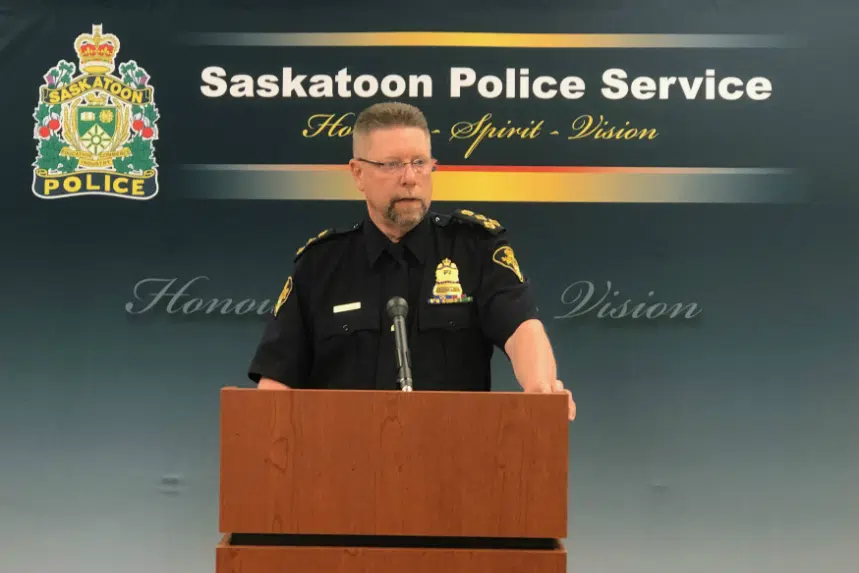Saskatoon Police Chief Troy Cooper responded Wednesday to the findings of the coroner’s inquest into the death of Joshua Megeney.
Megeney died in October of 2016 after a standoff with members of the Saskatoon Police Service.
The inquest concluded on Friday, with four recommendations brought forward by the jury.
Cooper commended the family of Megeney, who were in attendance for the inquest.
“Although this may have brought some closure to the Megeney family, I couldn’t imagine how painful and difficult it must have been to go through,” Cooper said.
On the other side, Cooper added that those involved in the inquest handled it with “integrity” throughout, including the jury.
Cooper said there was context that would be needed for the requests that were made. He added that he has been meeting, and will continue to meet, with his council on how to implement the recommendations.
He hopes to review Sgt. Ken Kane’s testimony in greater detail in the future, as he was the lead officer at the scene to ensure clarity in the process.
That covered the initial recommendation, Cooper said.
“Generally speaking, this is a reasonable expectation,” the chief said. “(It’s) something that we’re going to review (in) our processes to make sure that it’s considered.”
Cooper said since the incident, which occurred in 2016, the second recommendation has been met.
“We have purchased additional equipment that gives those tactical officers different options than what they had available to them at that time,” he said.
He said the Saskatoon Police Service expects to “review the inventory” as well.
When moving to the third recommendation, Cooper said there was already training implemented for all officers. He then clarified that they may need to implement additional training to the officers in the high-risk situations.
“In the next coming weeks, we’re going to be exploring options for that sort of training, and looking at best practices nationally, as well,” Cooper said.
The final recommendation included the special team’s tactic of “breach and retreat.” Cooper says he hopes to review and consult with other forces on this, and other tactical moves.
“That evaluation specifically, and more generally, the process of reviewing these recommendations will have a positive impact on our service both now and as we move forward,” he said.
Cooper said that once police officials review the recommendations in more depth, they will be providing a full report to the coroner’s office.
He was blunt when asked if the recommendations were going to be met.
“Yes, absolutely,” he said. “I think they’re achievable. They’re a request for us to review practice. I think that’s a good thing for us to do in any event.”











